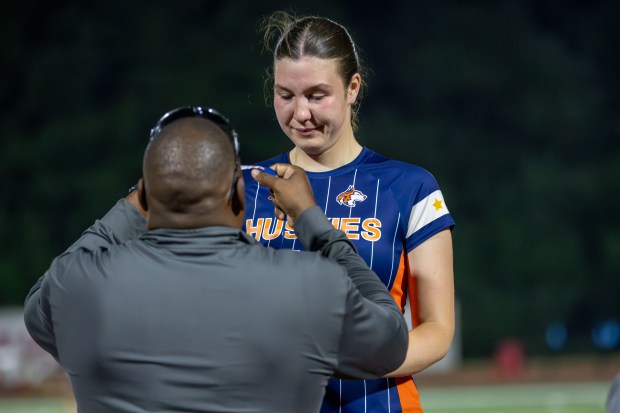The Porter County Board of Commissioners unanimously approved a resolution opposing Indiana House Bill 1628 on Friday morning — a measure which would give authority for approving multijurisdictional utility projects affecting electricity, gases and fluids, and water to the state by July 1, if approved in the current legislative session which ends April 29th.
State Rep. Ed Soliday, R-Valparaiso, who chairs the Committee on Utilities, Energy, and Telecommunications, says the resolution is a reaction to local governments allowing themselves to be influenced by the same group of 300 that travels the state attempting to throw up roadblocks to progress with scaremongering.
“If you’re going to do public policy by the mob, I don’t know how that will work,” he said by phone Friday afternoon.
“We have 72 counties in the state that have moratoriums on renewables, and if you ask them why, they can’t explain it,” Soliday said. “All 1628 was for was to start a conversation on two things: 1) Should one county be able to block a project? And 2) We’re in transition and need to onshore manufacturing.”
Soliday said the $50 billion worth of new business coming to the state is 100% on board with renewable energy “because they want to sell their products to Europe, Canada, places that want to know what you’re doing” to limit our carbon footprint. “Do we tell these people, ‘Not here?’ Is that who we want to be? Where are our kids going to work?”
All three Porter County commissioners and the president of the county council say they want to be officeholders who answer to their constituents.
“Once local governance is taken away, why even bother having local governance?” asked Porter County Council President Andy Vasquez, R-4th. “We serve the citizens of Porter County, and we never want to serve the interests of anyone else, because they’re the ones who elected us.”
“I’m opposed to any bill that takes away local control,” said Board of Commissioners Vice President Ed Morales, R-South. “That’s never good.”
Board of Commissioners President Jim Biggs, R-North, said he’s never heard of a large infrastructure project where a tax abatement wasn’t sought by the developer.
“Are they (the state) going to dictate a tax abatement?” he asked. “I’m really concerned; is the state of Indiana going to take that authority away from us? I think it’s stunning that they did not address that.”
Soliday pushed back against Biggs’ arguments, saying he knows Biggs was at the Statehouse just the other day and didn’t bother to speak with himself or HB 1628 sponsor Craig Snow, R-Warsaw. For his part, Biggs complained that Soliday didn’t reach out to the county and brought up the E911 bill that he said the state mandated without providing a funding mechanism as a past example of edicts from the state.
County officials aren’t the only ones concerned. State Sen. Rodney Poll, Jr., D-Chesterton, said he just had a conversation with Porter Council Council Vice President Red Stone, R-1st, “about how the state is getting increasingly hostile to local government.
“I think it’s terrible,” he said of HB 1628. “It’s something in which we’re taking away the choice of what happens in the local community and that to me is not small government.”
Others, such as State Sen. Ed Charbonneau, R-Valparaiso, are reserving an opinion until they know more.
“Since the bill’s still in the House he hasn’t had time to consider it yet,” said Charbonneau’s Press Secretary Emma Balzer.
Other legislators representing the county could not be reached for comment by press time.
County Commissioner Barb Regnitz, R-Center, asked what would be the best way to get the resolution in front of them.
“I have no problem if a county wants solar farms, and there are a number of them that do, but Porter County is not one of them,” she said.
She also wanted to know if these multijurisdictional projects would be allowed in any zone.
“Have they said what zone it would be in?” she asked.
“No,” replied Porter County Attorney Scott McClure.
Soliday acknowledged a solar farm could qualify for circumventing local permitting requirements under the bill if it passes.
“It would be up to them to make the case” because one county would be moving electricity across county lines, he said. “Generally the solar piece depends on what we do in the amendments.”
But as far the proposed Malden Solar Farm is concerned, Soldiay said the sun has set on any industry interest there.
“They’ll never come back,” he said. “NextEra has not talked to me for a minute.”
Still, he said that since solar has to be near transmission lines the Indiana Utility Regulatory Commission identifies areas that are ideal for solar farms. Should the bill pass it may contain language that gives counties latitude for selecting the placement of solar farms in their borders as well as considering the location of solar on lowest-yield farmland such as sandy soils or near coalfields.
Soliday said the Committee on Utilities, Energy and Telecommunications is busy working to amend the bill with input from any interested party. He said 25 witnesses testified for the committee on Tuesday and those speaking for the bill outnumbered those against it two-to-one.
“If citizens come down, they get to have input,” he said. “That bill will not be finished, assuming I even let it out of committee, until April 27th.”
Shelley Jones is a freelance reporter for the Post-Tribune.





